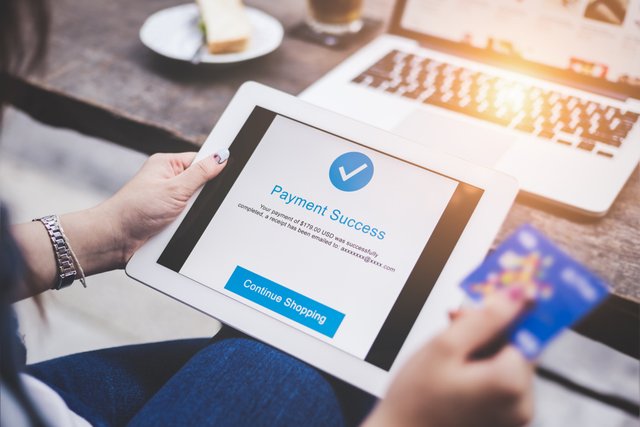Is Banking Ready to Adopt Blockchain?

Blockchain can significantly enhance industries jam-packed with routine workflows. Banking is no exception. However, the tight regulation of this industry prevents banks from making any drastic changes to their operations.
According to Mr. Singh, professor at Carnegie Mellon University, some banks have already started testing out blockchain-based inter-bank transactions. Next areas to be influenced by blockchain are payment processing and fraud detection. This post will explain how blockchain can come in handy here.
Blockchain for Banking Transactions
Blockchain can act as a digital ledger cutting out intermediaries. This will propel more affordable costs for remittances.
Before looking at how blockchain can process payments, let’s start with an example of a typical transaction. John wants to pay for his purchase at ABC, a merchant, by using his credit card. John’s card was issued by bank A, whereas ABC is served by bank B. In this case, ABC needs to submit the details of John’s card to their bank B that delivers them further to the payment card company. This company transfers these details to bank A that issues the bill to be paid by John.
As every transaction needs to be verified, it’s not only time-consuming but cost-inefficient, too. And all these costs are paid by merchants. Only the verification of PCI-DSS compliance may cost businesses $240 a year. In total, financial institutions can charge businesses as much as $10,000-250,000 a year (2.87-4.35% of their turnover) for processing their transactions.
How can blockchain cut these costs? With the help of smart contracts, it can automate payment processing with no intermediaries required. Blockchain will not only store the required card details but provide access to them for all the authorized parties.
Nevertheless, the technology’s efficiency is still a bit far from turning the industry upside down. The key reason for this is that authorities strictly regulate this industry. So, until blockchain is accepted as one of the payment processing standards, there’s no way to force all the parties participating in transactions to adopt it.
Meanwhile, blockchain-led solutions are seeping into banking routines little by little, starting with the most cost-inefficient processes. If you’re developing one of them, we would advise you to adopt the genEOS blockchain platform that already contains pre-designed smart contracts. It will save you both time and budget.
Blockchain for Fraud Detection
Do you know that in 2017 banking fraud accounted for a £731.8 million loss in the UK? At the global scale, only payment-related fraud totaled $20bn.
To understand how banks can be duped, let’s consider the example of a $2 billion loss endured by the Indian bank PNB. One of the largest Indian jewelers importing supplies from Hong Kong guaranteed his payments to the suppliers by letters of undertaking issued by PNB. Although such letters require both pre-approved credit limit and documented delivery details, the jewelry company had neither yet managed to get the documents. This happened because two corrupted employees didn’t require any proof for issuing these letters. The bank exposed the cheating scandal only when the Hong Kong supplier requested the payment, and the jewelry company couldn’t shoulder its liabilities.
Blockchain would prevent such a situation. With the help of smart contracts, the technology would approve issuing of such letters of undertaking only if all the requirements were in place. Blockchain is incorruptible by default, so the data stored on blockchain can’t be forged. In addition, blockchain can automatically notify the transaction participants about any changes to the data.
Blockchain in Banking is Under Way
Banks are interested in adopting blockchain, with 90% of bank executives seeing their financial institutions advance in this direction. Although there are still obstacles to rapid industry transformation, mostly because of the strict regulations, we’re likely to see more banking institutions fiddling with blockchain technologies for payment processing and fraud detection.
To the question in your title, my Magic 8-Ball says:
Hi! I'm a bot, and this answer was posted automatically. Check this post out for more information.
Looks like they are backing Ripple in a huge way.... the Bank always wins
Posted using Partiko iOS